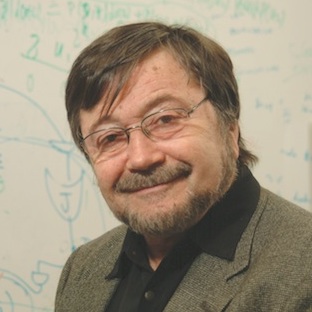
Judea Pearl, chancellor professor of computer science at UCLA, National Academy of Sciences member and Daniel Pearl Foundation president, called on UCLA to take on California State University’s (CSU) recently adopted position that Zionism is integral to Jewish identity.
As the Journal reported, on March 20 a settlement agreement was reached between a couple of Jewish San Francisco State University students and the CSU Board of Trustees in which CSU will issue a statement acknowledging that “for many Jews, Zionism is an important part of their identity.”
In a statement sent to the Journal via email, Pearl said, “This legal settlement is a milestone in the fight against institutional anti-Semitism in academia, and promises to redefine the posture of Jewish students nationwide. The new posture implies that in all matters concerning code of conduct, Zionism now attains the same protection status as any religion or nationality, and Zionophobia turns as despicable and condemnable as Islamophobia.”
“At UCLA, my students and colleagues are waiting for the UC system to respond to the recent settlement and articulate its attitude towards verbal assaults on Zionism or Zionist students,” Pearl continued. “More specifically, we hope that the next wave of anti-Zionist assaults will be met with a stern and deterring condemnation by the UCLA administration and, not less important, that any such condemnation be accompanied by a public statement highlighting the unique and positive contribution that Zionist and Israeli students bring to the cultural tapestry of UCLA.”
“Only public restoration of acceptance can undo years of unrestrained slander of a Jewish Homeland,” Pearl concluded.
The university did not respond to the Journal’s request for comment.
In December, UCLA Chancellor Gene Block was one of the 10 UC chancellors who signed a statement condemning “an academic boycott of” Israel as “a direct and serious threat to the academic freedom of our students and faculty, as well as the unfettered exchange of ideas and perspectives on our campuses, including debate and discourse on the Middle East.”


































 More news and opinions than at a Shabbat dinner, right in your inbox.
More news and opinions than at a Shabbat dinner, right in your inbox.